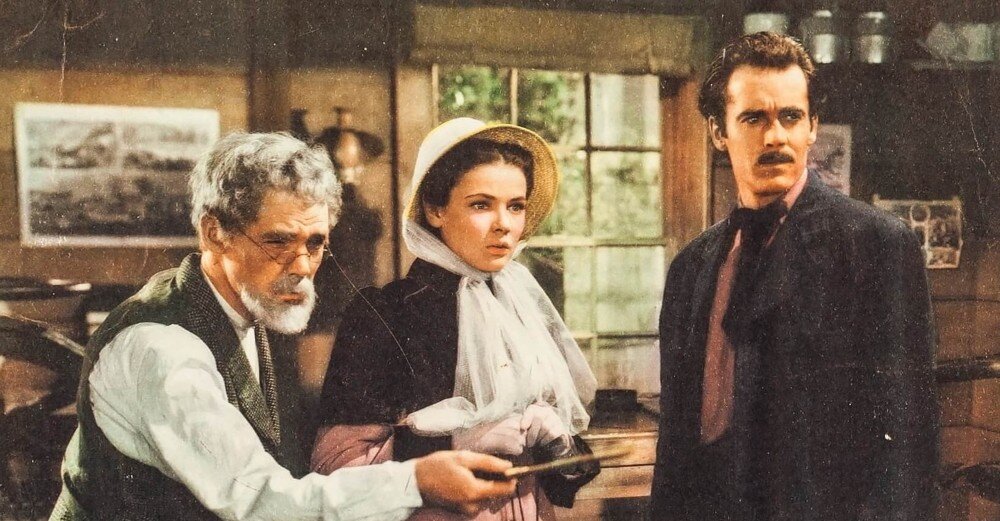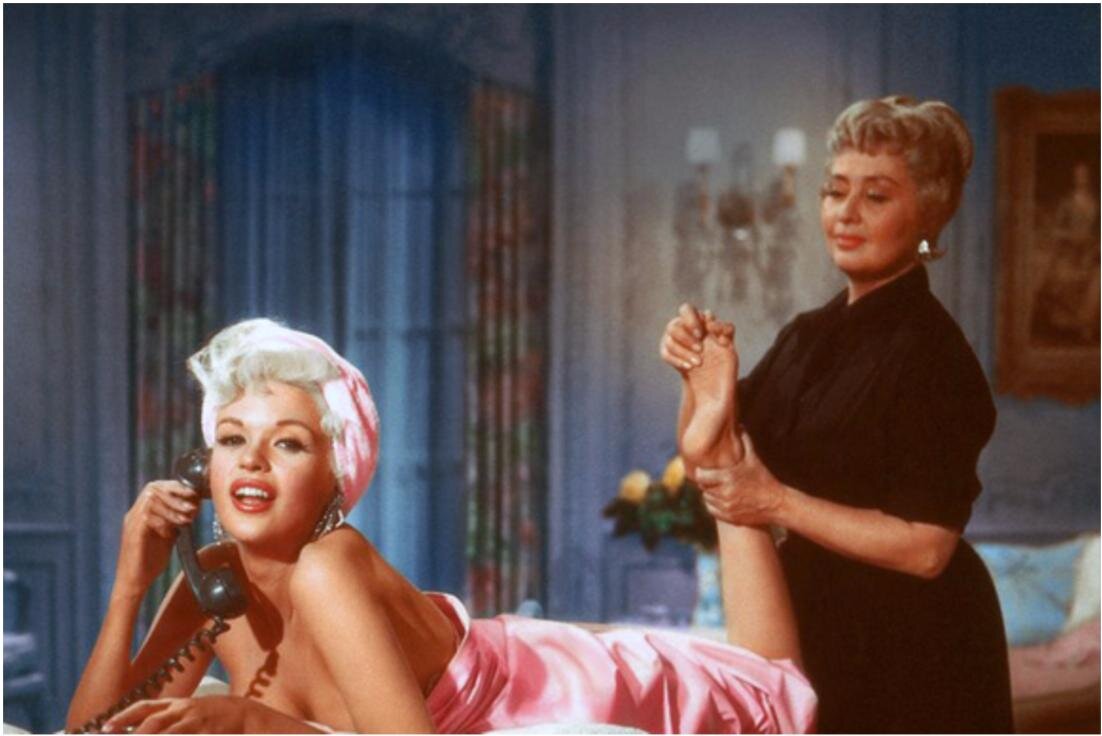FOCUS: Technicolor sERIES
For some considerable time, the industrial and commercial worlds have pursued new gadgets and gimmicks with haste. By the years 1954 and 1955 a tipping point has recently been reached by way of the commercial television and its prevalence within the home, American or otherwise. Hollywood’s talent farm magnates see this as a crisis in need of immediate management. These are the years it is commonly imagined Technicolor took off. Not exactly so. Colour and colourization for the cinema are nearly as old as the form. In the days of early silents: primarily dyes, as with postcards, though with some more involved dye bath processes entering the picture. Before their premier feature film debut as going concern in the field of three-strip colourization, the 1935 RKO-distributed Becky Sharp, the team at Technicolor has been striving inconsistently to achieve its excellence. The secret recipe: red, green, and blue light. Other patents will be subsequently submitted and ultimately stamped, other colour process operations boasting of their three strips, this a new and increasingly available magic.
Series Films
bIGGER THAN lIFE (1956)
Directed by Nicholas Ray
aUG 5, 2021
Not unlike future television smash hit Breaking Bad, Nicholas Ray’s 1956 film Bigger Than Life, an exploding propane tank of a domestic Hollywood melodrama, tells the story of a hardworking, morally steadfast schoolteacher and family man (James Mason as Ed Avery) who becomes grievously ill at the outset, entering thereafter into what we might call a slide. Prescribed cortisone to treat a rare inflammation of the arteries, Ed, who has been working a second job on the sly and maintaining a false front, responds poorly to the corticosteroid, rapidly devolving into a paranoid brute pedagogue and outright fanatic.
becky sharp(1935)
Directed by Rouben Mamoulian
aUG 19, 2020
Lively and visually ravishing, Becky Sharp is, as an early sound film, hardly breaking the mould in setting out to adapt a classic work of English literature (Thackeray’s 1848 novel Vanity Fair) by way of a live theatre version proven saleable on the New York stage. Big sets, martial processions, a large and fuzzy historical canvas, and colour louder than life itself.
The return of frank james (1940)
Directed by fRITZ LANG
sept 2, 2021
It’s a patchy bit of pop mythology: notorious outlaw Frank James (Henry Fonda) has chosen to lay low and make an honest go of things out on the wide open margins, until, having caught wind of the highly pernicious manner in which his brother Jesse was killed by the Ford brothers (John Carradine as Bob, Charles Tannen as Charlie), he sets out to implement a true justice intended to speak its own just truth.
WILL SUCCESS SPOIL ROCK HUNTER? (1957)
Directed by FRANK TASHLIN
sEPT 16, 2021
Famous movie goddess Rita Marlowe (Jayne Mansfield) happens to be back in town with her wisecracking personal assistant (Hollywood legend Joan Blondell). What is it that the public relations flacks have assured Rita Marlowe come to be known for? Why, the lips most kissable, naturally! Rock Hunter sets out to engineer himself a professional coup—in the manner of something not unlike a bull in a china shop.
MAGNIFICENT OBSESSION (1954)
Directed by Douglas Sirk
oCT 14, 2021
Playboy Bob Merrick (Rock Hudson) nearly dies in a reckless speedboat accident but is saved by a resuscitator belonging to the widely-beloved Dr. Phillips, who could have used the resuscitator himself, and sadly dies. Having descended into moral tailspin, Merrick meets the painter Randolph, a former acolyte of the deceased Dr. Phillips, and, in his clumsy ardour, eager to perform a solid about-face, shortly thereafter proceeds to harry the poor widow of Dr. Phillips (Jane Wyman) to such an extent that she is struck by an automobile and perhaps permanently blinded.
cARMEN jONES (1955)
Directed by OTTO PREMINGER
OCT 28, 2021
Carmen Jones, both the film and the transplanted archetype for whom it is named, comes on with quite a salvo: If you love me, that’s the end of you. The character of Carmen was introduced in a French novella in the year 1845 and made properly epochal in Georges Bizet’s opera about three decades later.







